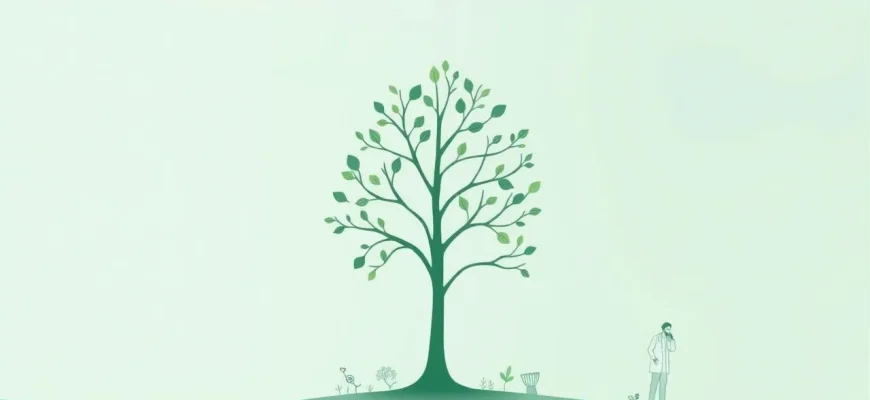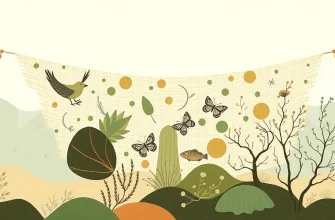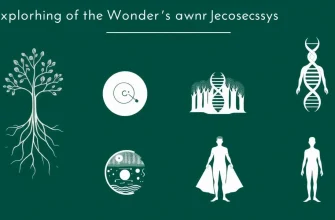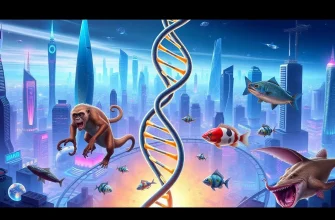Delve into the fascinating world of biological research with this handpicked collection of documentaries. These films not only provide a window into the intricate processes of life but also highlight the relentless pursuit of knowledge by scientists. Whether you're a budding biologist or simply curious about the natural world, these documentaries offer a blend of education and awe-inspiring visuals that will leave you marveling at the complexity and beauty of life.

Planet Earth (2006)
Description: A landmark series that captures the natural wonders of our planet, including its diverse ecosystems and the biological processes that sustain them. It's a visual and educational feast for anyone interested in the natural world.
Fact: The series was the most expensive nature documentary ever commissioned by the BBC at the time, costing over $25 million.
 Watch Now
Watch Now 
The Hunt (2015)
Description: This documentary series examines the strategies predators use to catch their prey and the ingenious ways prey species avoid being caught. It's a thrilling look at the dynamics of survival.
Fact: The series was filmed over three years and required the use of cutting-edge technology to capture the intimate moments of the hunt.
 Watch Now
Watch Now 
The Secret Life of Plants (1979)
Description: This film explores the fascinating world of plants, revealing their secret lives through time-lapse photography and scientific experiments. It's a must-watch for anyone interested in how plants interact with their environment and each other.
Fact: The film was inspired by the book of the same name by Peter Tompkins and Christopher Bird, and it features a soundtrack by Stevie Wonder.
 30 Days Free
30 Days Free 
Microcosmos (1996)
Description: This film brings the microscopic world to life, showcasing the intricate behaviors of insects and other small creatures. It's a mesmerizing look at the unseen world of biology.
Fact: The film was shot using specially designed macro lenses and took over 15 years to complete.
 30 Days Free
30 Days Free 
The Private Life of Plants (1995)
Description: David Attenborough examines the strategies plants use to survive, grow, and reproduce. This documentary offers a unique perspective on the often overlooked world of flora.
Fact: The series was filmed over three years and used time-lapse photography to capture the slow-motion drama of plant life.
 30 Days Free
30 Days Free 
The Trials of Life (1990)
Description: Another gem from David Attenborough, this series examines the challenges animals face in their quest for survival, from birth to reproduction. It's a comprehensive look at the strategies of life.
Fact: The series was filmed over a period of three years and covers a wide range of animal behaviors, including mating, parenting, and survival tactics.
 30 Days Free
30 Days Free 
The Blue Planet (2001)
Description: This groundbreaking series explores the world's oceans, revealing the extraordinary creatures and ecosystems beneath the waves. It's a deep dive into marine biology and the interconnectedness of life in the sea.
Fact: The series took five years to film and required the development of new underwater filming techniques.
 30 Days Free
30 Days Free 
Life in Cold Blood (2008)
Description: Sir David Attenborough takes viewers on a journey to explore the lives of reptiles and amphibians, showcasing their unique adaptations and behaviors. This documentary is a testament to the diversity of life on Earth.
Fact: This was the last in Attenborough's "Life" series, focusing on cold-blooded animals, and it took over four years to film.
 30 Days Free
30 Days Free 
The Living Planet (1984)
Description: Sir David Attenborough explores the various environments of Earth, from deserts to rainforests, and the life forms that inhabit them. It's an educational journey through the planet's diverse ecosystems.
Fact: This was the second in Attenborough's "Life" series, following "Life on Earth."
 30 Days Free
30 Days Free 
Life (2009)
Description: A follow-up to "Planet Earth," this series focuses on the behavior of animals, showcasing the extraordinary lengths they go to survive and thrive. It's a vivid portrayal of life's tenacity.
Fact: The series took over four years to film and involved over 1500 days of shooting.
 30 Days Free
30 Days Free 








